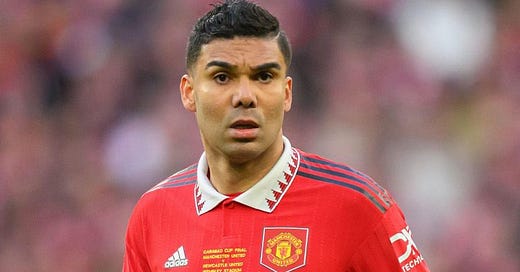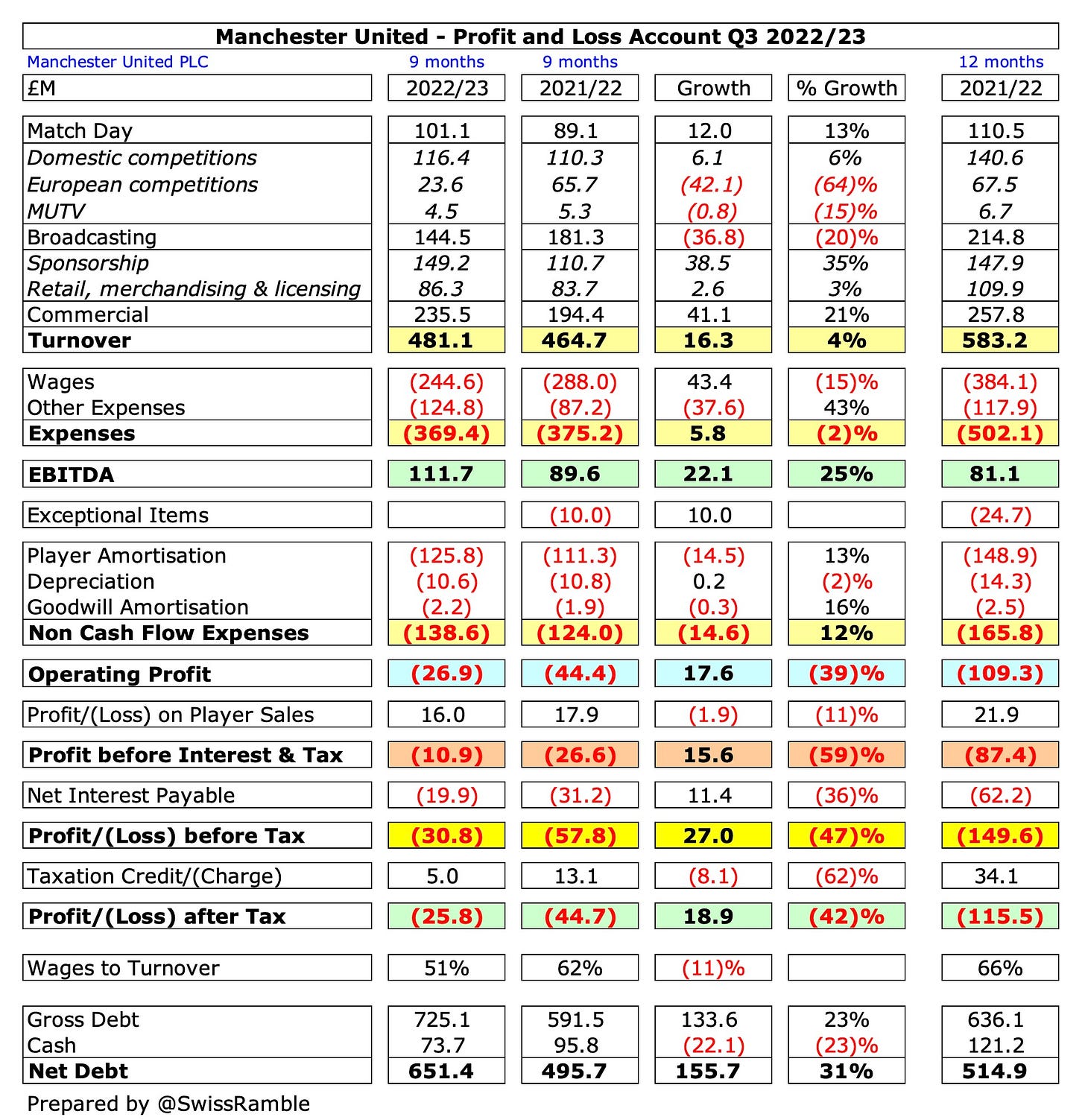Manchester United have announced financial results for Q3 of 2022/23, incorporating the first 9 months of the season (July 2022 to March 2023). Although very few clubs publish quarterly accounts, there were still some interesting messages in United’s figures.
These results covered a promising first season under manager Erik ten Hag, as United won the Carabao Cup and reached the final of the FA Cup, though they were eliminated by eventual winners Sevilla in the quarter-finals of the Europa League.
Most importantly from a financial perspective they finished third in the Premier League, thus securing a return to the lucrative Champions League in 2023/24.
Overview
Manchester United’s pre-tax loss for the first 9 months of 2022/23 almost halved from £58m to £31m, as revenue rose £16m (4%) from £465m to £481m, though profit from player sales fell £2m to £16m. Operating expenses were fairly flat at £508m, but net interest payable decreased by a third from £31m to £20m.
Loss after tax also decreased by £19m from £45m to £26m. This was a bit better than the pre-tax result, due to a £5m tax credit.
Manchester United’s revenue growth was driven by commercial, which shot up £41m (21%) from £194m to £235m, though match day also increased £12m (13%) from £89m to £101m. On the other hand, broadcasting dropped £36m (20%) from £181m to £145m.
Manchester United’s wages decreased £43m (15%) from £288m to £245m, though player amortisation grew £15m (13%) from £111m to £126m and other expenses rose £38m (43%) from £87m to £125m. This year benefited from no repeat of the £10m exceptional charge in 2021/22.
The impact of interest payable on Manchester United’s accounts continues to be evident, decreasing by £11m (36%) from £31m in 2021/22 to £20m this season, though this was still on the high side compared to previous years.
Keep reading with a 7-day free trial
Subscribe to The Swiss Ramble to keep reading this post and get 7 days of free access to the full post archives.






